#AskMe… Have the Conversation

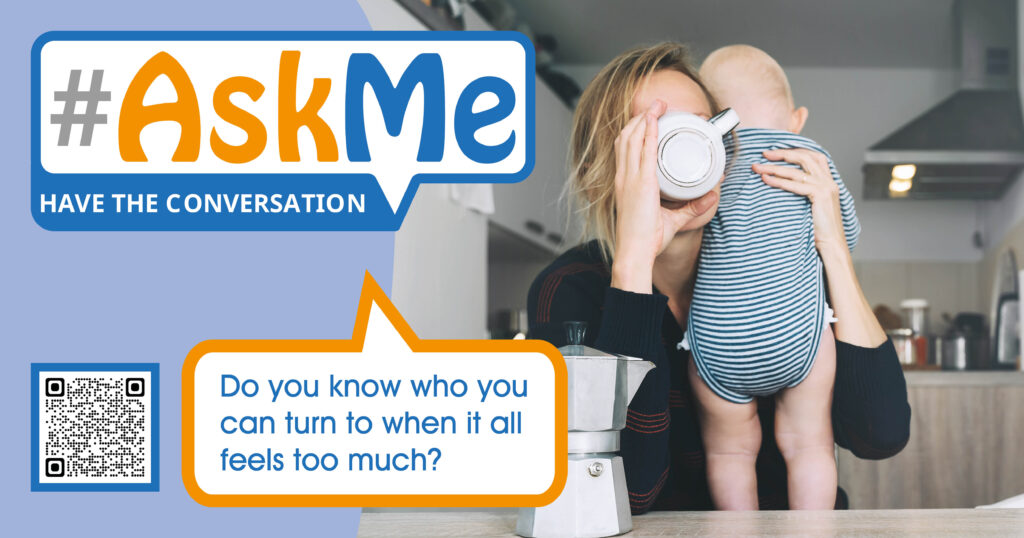
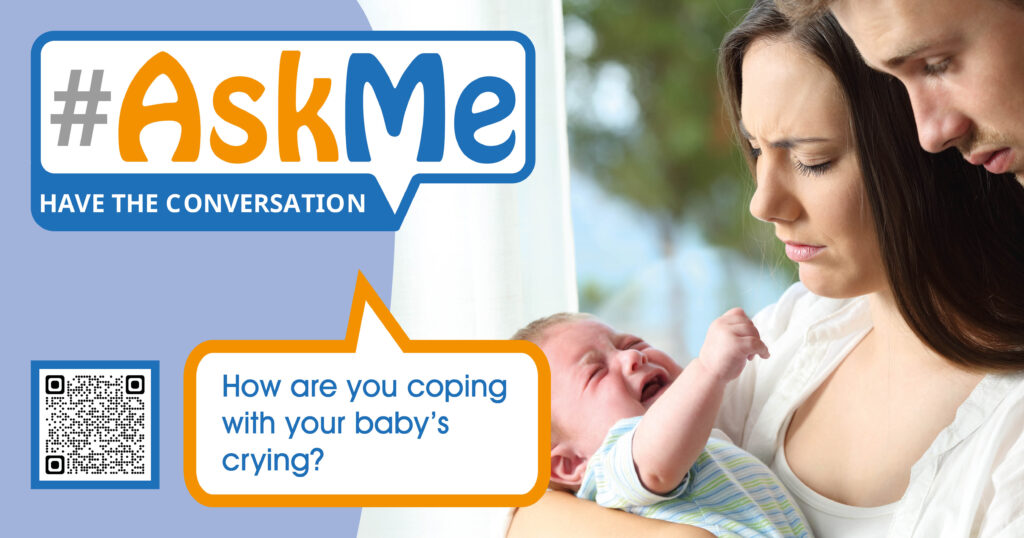
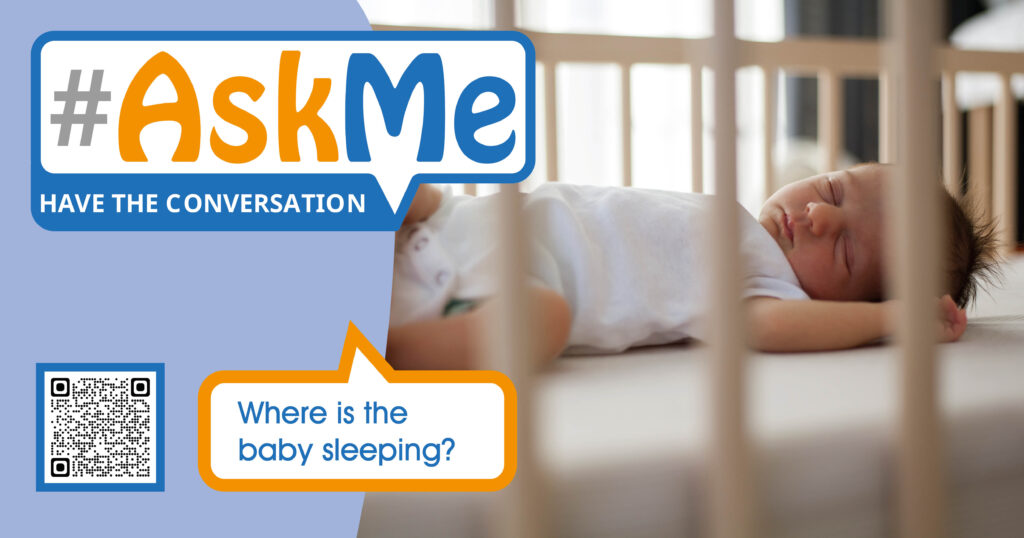
#AskMe….. Have the Conversation is a campaign aimed at professionals across North Yorkshire to encourage them to have conversations with new and expectant parents about how they are feeling about a number of aspects of having and caring for a baby.
Below you will find the collation of key resources and information to raise awareness for practitioners of the need to ask parents how they are feeling around aspects of caring for their baby in those crucial first few months of life.
Having a baby is a life changing event that brings many joys and challenges. Some parents may find it difficult to share with professionals that they are struggling, therefore it is crucial for all frontline practitioners who come into contact with new partners to have the confidence to explore with them how they are feeling and coping with the changes and challenges parenthood can bring.
#AskMe is about professionals asking the questions of new and expectant parents about how they are feeling and managing with the challenges in a supportive and non-judgmental way.
- Safe Sleep
- Safe feeding
- Babies cry you can cope
- Parental mental health
- Information for dads
- Further information and questions to consider
- #AskMe Campaign materials
- Keeping up to date
#AskMe was developed following the thematic review, commissioned by the NYSCP Executive, to identify learning from three similar cases of non-accidental injury to non-mobile infants. All three of the cases considered were the subject of Rapid Reviews which included recommendations for practice which were taken forward by the Partnership.
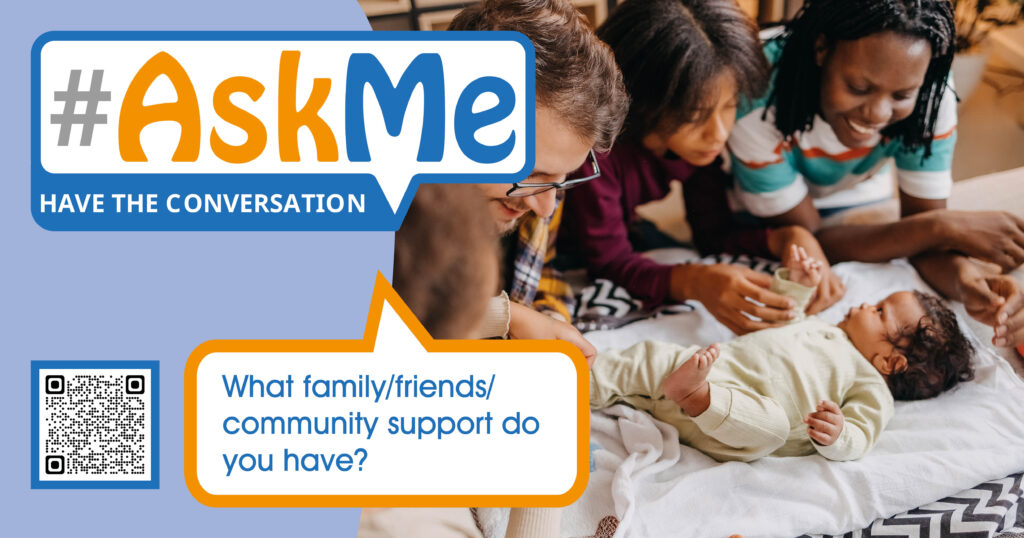
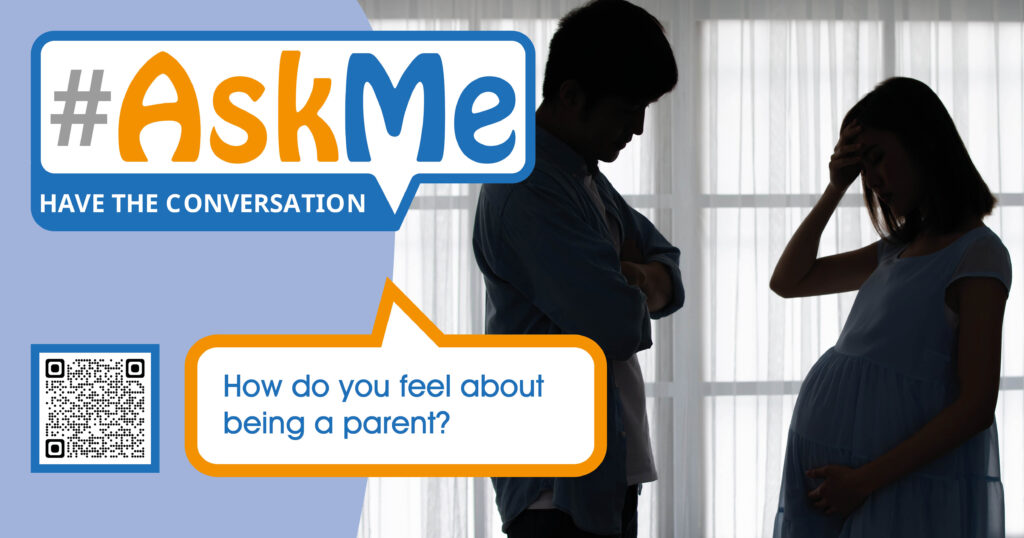
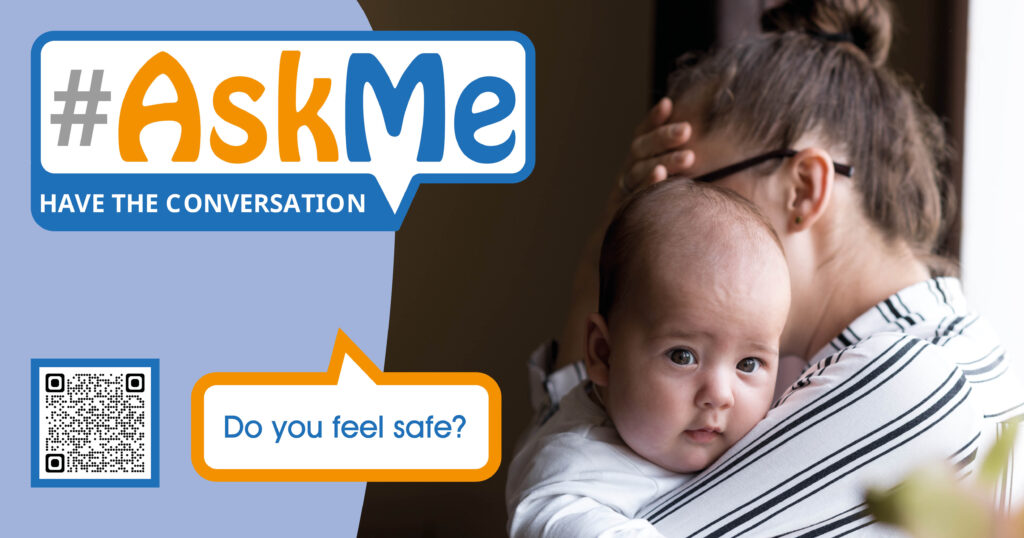
Safe sleep:

Day or Night, Sleep Right is a key message to those who care for infants across North Yorkshire and York. The ‘Day or Night, Sleep Right’ campaign has been created as a way of providing information regarding the importance of safe sleeping environments for infants to reduce the number who have sadly died as a result of Sudden Unexpected Death in Infancy (SUDI) .
Sometimes families may be away from home and ‘out of routine’ for example on holiday or visiting relatives. In light of this the Partnerships are urging people to think about safe sleeping arrangements for their infants at all times.
More information about the Day or Night Sleep Right Campaign can be accessed here: NYSCP (safeguardingchildren.co.uk)
Safe Sleep for babies guidance and resources:
Safe sleep for babies: NYSCP (safeguardingchildren.co.uk)
Sudden and Unexpected Deaths in Infancy (SUDI) Prevention: NYSCP (safeguardingchildren.co.uk)
Safe sleep advice for babies – Start for Life – NHS (www.nhs.uk)
The Lullaby Trust – Safer sleep for babies, Support for families: The Lullaby Trust raises awareness of sudden infant death syndrome (SIDS), provides expert advice on safer sleep for babies and offers emotional support for bereaved families
Basis: Baby sleep info source: resources for parents and professionals including basic information sheets, links to the Infant sleep info App and ‘where might my baby sleep’ discussion tool.
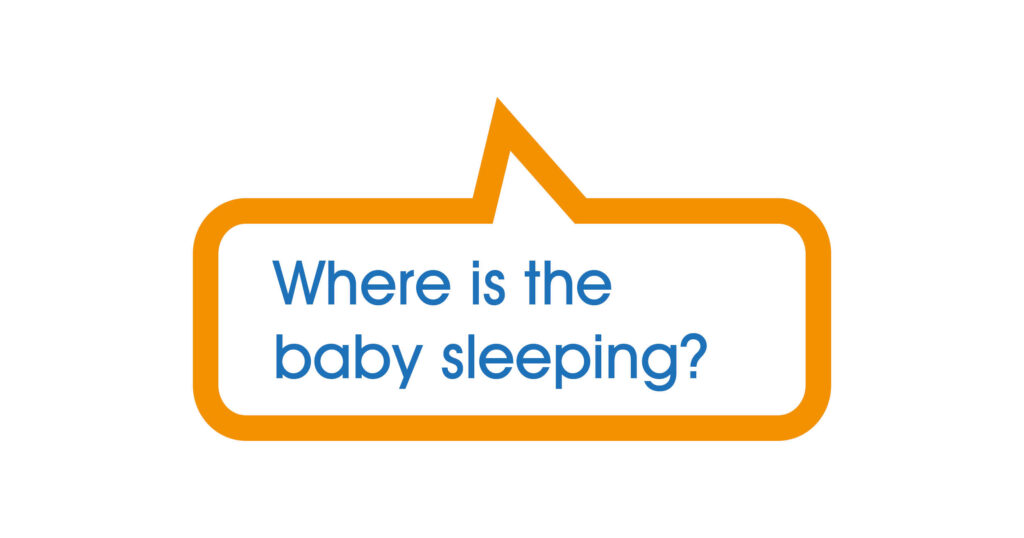
Safe feeding:
Around the world there have been concerns raised recently about a rise in prop feeding as a contributing factor to Sudden Infant Death Syndrome (SIDS).
Even if this is done for a very short period, it is dangerous for a baby.
What is prop feeding?
Bottle propping, or prop feeding, is where a baby is left with their bottle ’propped’ in their mouth before they are able to hold the bottle themselves. The bottle may be propped up against cushions whilst on a sofa or chair, or propped in their mouth with a blanket, pillow or other object whilst in their car seat, bouncer or crib. This should never be done.
Although this may only be intended for a short period, while you nip to the toilet or answer the phone, it can be very dangerous for your baby.
Always supervise your baby during feeding.
Dangers and risks of prop feeding
These include:
- Choking: Babies can’t cope with the continuous flow of milk from a bottle, which may continue after the baby stops sucking. This can lead to your baby inhaling or aspirating milk, rather than swallowing it. Choking during prop feeding can be silent, and your baby can choke without you noticing.
- Aspiration: This occurs when food or drink goes into a baby’s lungs instead of their stomach, and can lead to chest infections and hospitalisation. Babies are more at risk of aspiration when fed lying flat on their back (instead of upright).
- Suffocation: Your baby’s risk of suffocation is increased when you prop pillows, roll up blankets or use soft toys to support the bottle in your baby’s mouth. These items can fall over your baby’s face and smother them.
- Tooth decay: Prop feeding/ bottle propping results in milk pooling in the back of your baby’s mouth rather than flowing down their throat. The longer the milk stays in the mouth, the greater the risk is of their teeth decaying as they come through.
- Ear infections: Ear infections are another complication of prop feeding that causes milk to pool in the back of a baby’s mouth. When a baby is lying flat whilst feeding, milk can collect near the opening of the small passageway that connects the throat to the middle ear; called the eustachian tube. The milk that pools here can cause irritation and/or swelling in the inner ear.
- Interruption of bonding: Prop feeding/ bottle propping takes away bonding time between you and your baby. Holding, looking at and talking to your baby whilst feeding is crucial for bonding. This promotes healthy infant attachment and development, and maintaining eye contact while feeding is important for a baby’s brain development. If this time is lost, it can weaken your bond.
Feeding your baby with a bottle
When offering your baby a feed from a bottle, paced feeding is recommended.
Paced feeding allows your baby to be in control and regulate their feed, this avoids over feeding and choking.
Never leave a baby unsupervised when feeding.
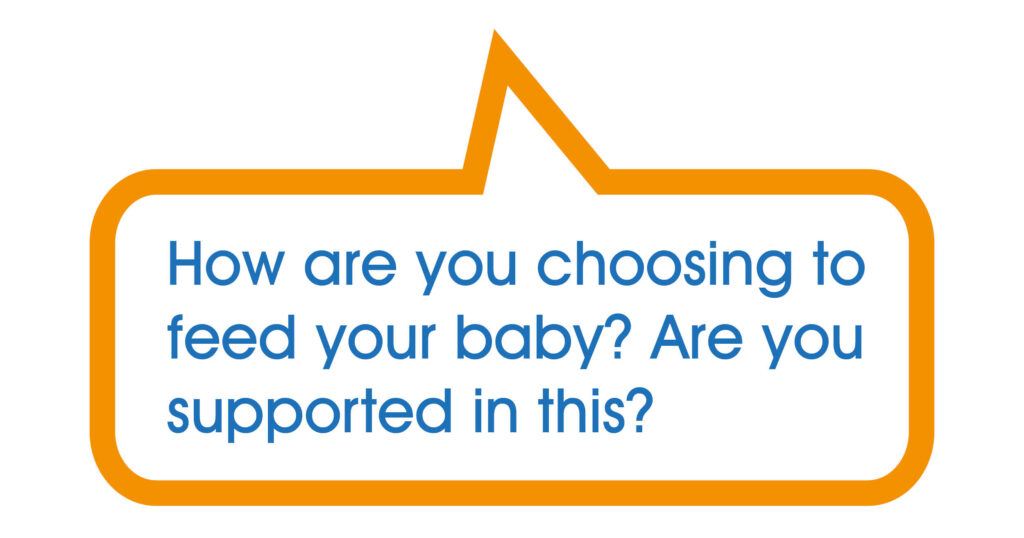
I.C.O.N: Babies Cry You Can Cope
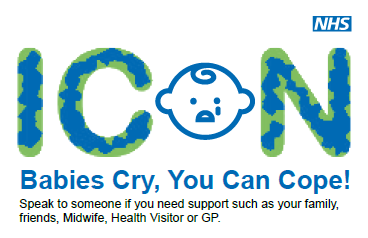
ICON – Babies Cry, You Can Cope programme supports parents and carers manage normal infant crying and to prevent abusive head trauma injuries to babies caused by shaking, also referred to as ‘shaken baby syndrome’.
The ICON programme delivers four simple messages before the birth and in the first few months of a baby’s life:
I – Infant crying is normal;
C –Comforting methods can help;
O – It’s OK to walk away;
N – Never, ever shake a baby.
Crying infants: Guidance and resources
Support For Crying And Sleepless Babies | Cry-sis
My baby is crying all the time :: Healthier Together (what0-18.nhs.uk)
Parental Mental Health:
A perinatal mental health problem is one that parents may experience any time from becoming pregnant up to a year after giving birth.
Having a baby is a big life event. It’s natural to experience a range of emotions. But if these feelings start to have an affect on daily life, this might be a perinatal mental health problem.
This could be a new mental health problem. Or an episode of a problem a parent may have experienced in the past.
It can be difficult for a parent to know whether they’re experiencing perinatal mental health problems. Especially if they’ve become a parent for the first time.
Some of the symptoms that they experience may feel normal to you at first. They may feel like its a natural part of having a baby. This can make it more challenging for them to know when to seek help.
Parental Mental Health: Guidance and resources
Children of Parents with Mental Health Problems (proceduresonline.com)
NYSCP (safeguardingchildren.co.uk): Parental Mental Ill Health on Children One Minute Guide
NYSCP (safeguardingchildren.co.uk): Tool for Assessing and Responding to the Impact of Parental Mental Ill Health on Children (PAMIC)
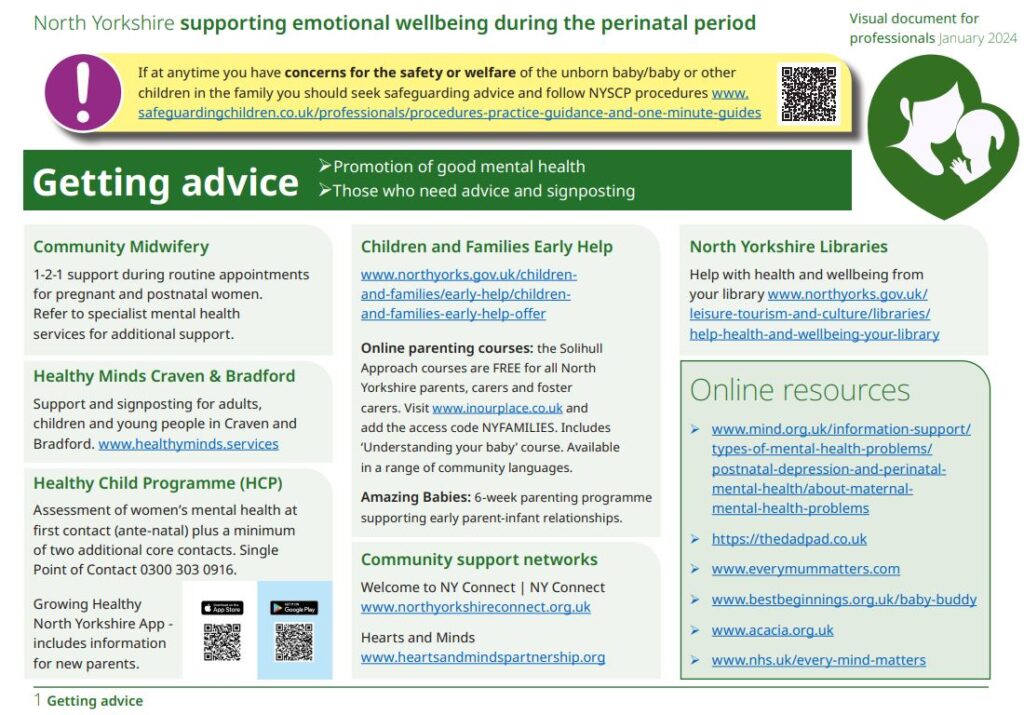
A guide for perinatal support for parents in North Yorkshire, with advice and guidance for different levels of support including:
Getting advice (Promotion of good mental health/Those who need advice and signposting)
Getting help (Mild to moderate/Those who need focused goal-based input)
Getting more help (Moderate to severe/ Those who need more extensive and specialised goals-based help)
Getting risk support (severe to urgent)
Click on the image to download.
Information for Dad’s
Post-natal depression (PND) as defined by the NHS is:
A type of depression that many parents experience after having a baby. It’s a common problem, affecting more than 1 in every 10 women within a year of giving birth. It can also affect fathers and partners.
- 1 in 10 dads suffer with PND – that’s 75000 dads each year in the UK.
- Up to 38% of new dads are worried about their mental health
- 33% of young fathers wanted support for their mental health and there was nothing for them
Further information and questions to consider:
Professional Curiosity:
Being professionally curious is fundamental to how we work with children, young people, their families and
adults with care and support needs, and other professionals. To work alongside people, we need to really
understand their perspectives and lived experiences so that we can support them to achieve their full potential.
It is a practice mindset and communication skill that involves exploring and understanding
what is happening by asking questions and maintaining an open mind. It is about understanding one’s own
responsibility in managing risk and safety and knowing when to act, rather than making assumptions and taking
things at face value.
More information about Professional Curiosity can by found in the Practice Guidance: NYSCP (safeguardingchildren.co.uk)
Safeguarding Unborn Babies Practice Guidance: NYSCP (safeguardingchildren.co.uk)
Managing Injuries to Non-Independently Mobile Children Practice Guidance: NYSCP (safeguardingchildren.co.uk)
See all of the partnership Practice Guidance and One Minute Guides here: NYSCP (safeguardingchildren.co.uk)
Other questions to consider:
- #AskMe: What works when baby is crying? (and offer alternative suggestions as well) Soothing a crying baby – NHS (www.nhs.uk)
- #AskMe: Do you need any help? Do you know how and where to access it?
- #AskMe: How are you coping if this is your second/third…child. Is it different to the first time? What has changed?
- #AskMe: If you haven’t parented in a while; how are you coping with starting again? What do your remember? What may have changed compared to the current advice?
- #AskMe: How is baby sleeping? Who is managing to settle the baby and who is struggling?
- #AskMe: Are you smoking? Do you want any help to stop? If you plan to carry on how will you manage this safely around the baby?
- #AskMe: How are you coping with being parents as a couple? Has it changed the relationship? Do you need support with this?
- #AskMe: When there is a change in the routine e.g. going away, staying in a new place, how will you safely manage baby’s sleeping arrangements?
- #AskMe: Do I need bereavement support? Bereavement support after the death of a baby or child – The Lullaby Trust
#AskMe Campaign Materials:
Facebook/X images:
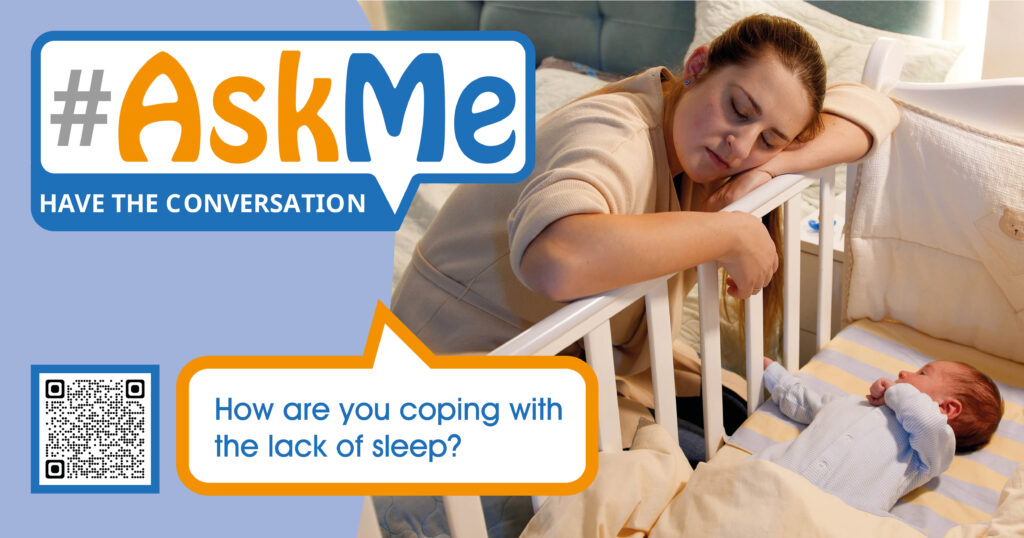

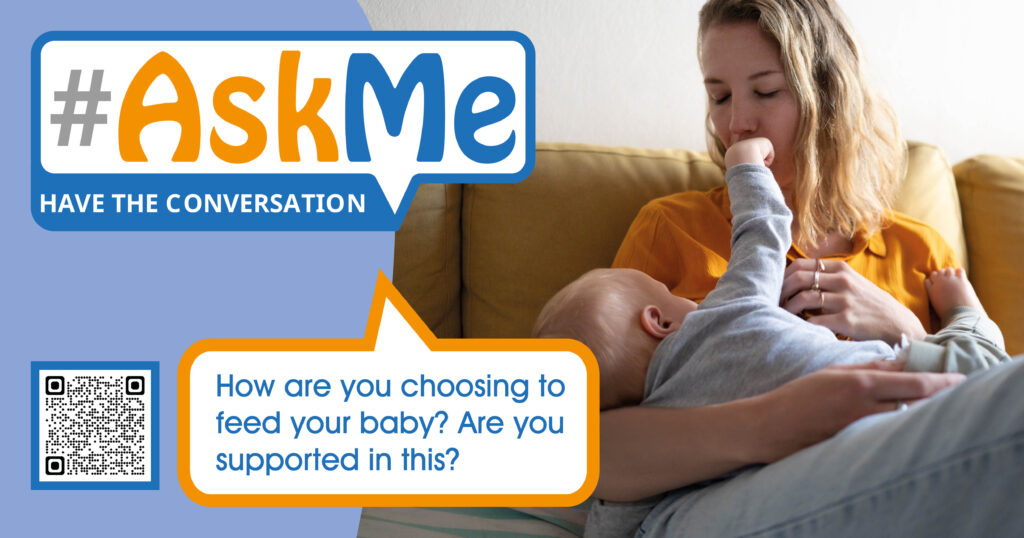





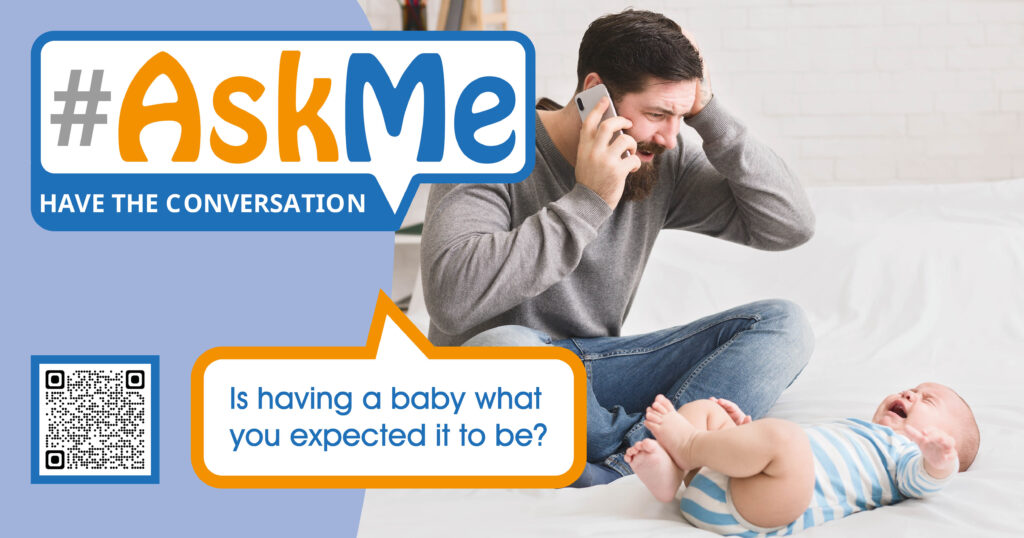
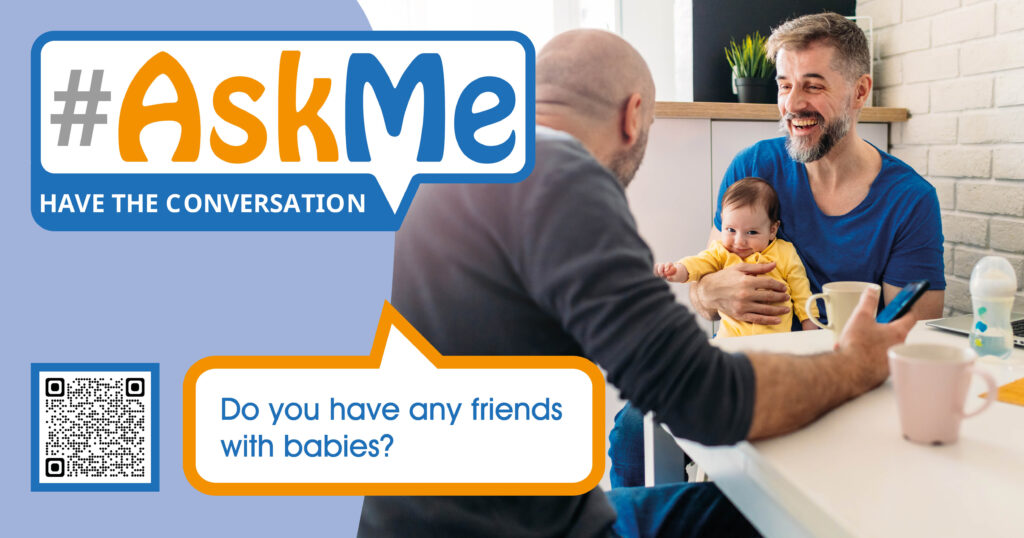
Instagram images:
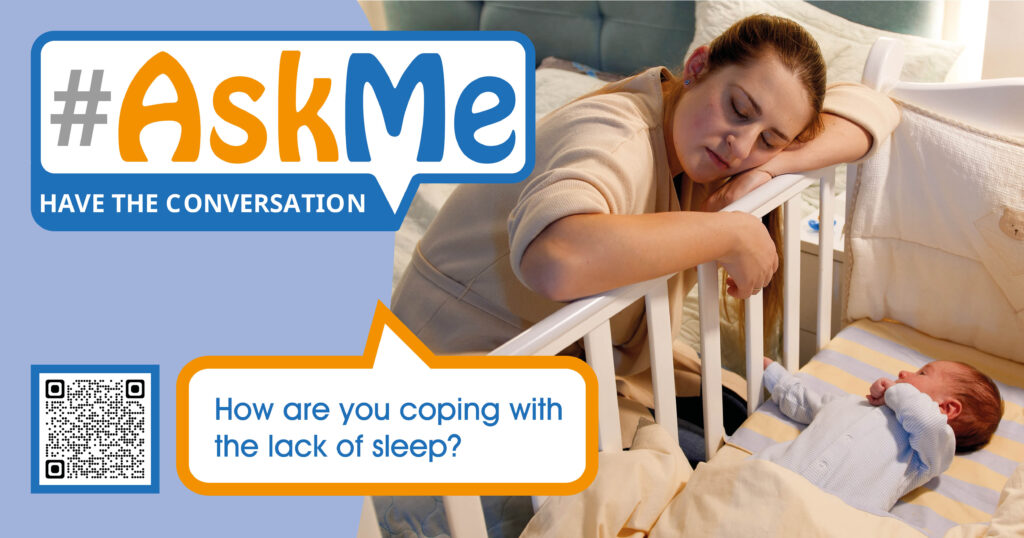
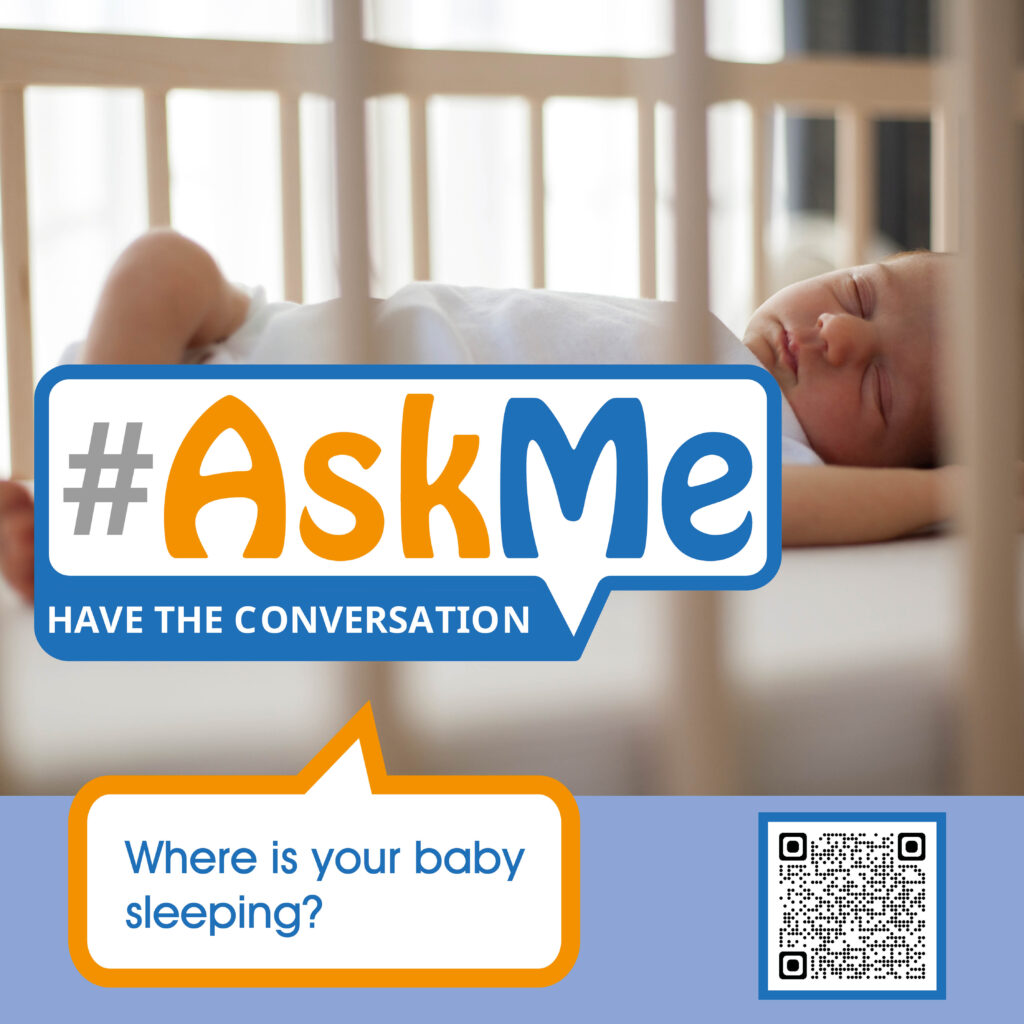
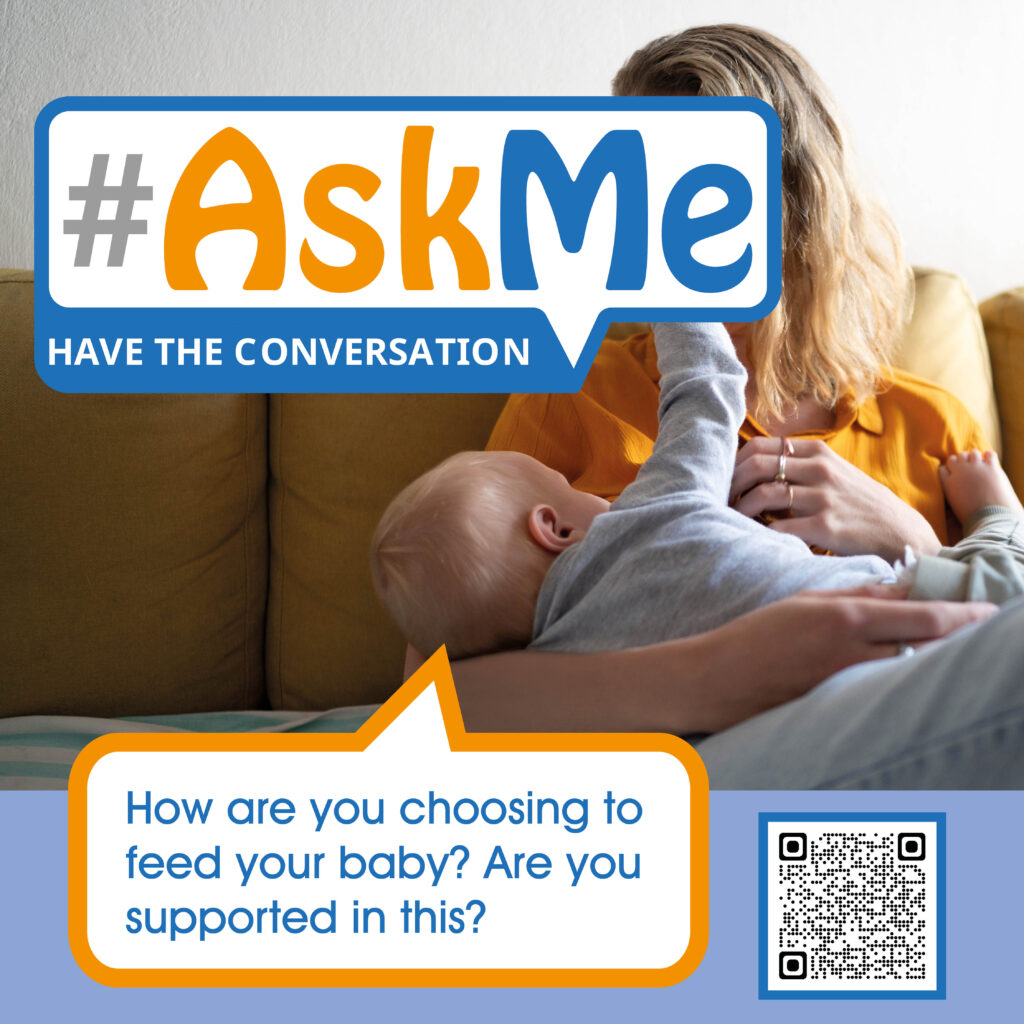
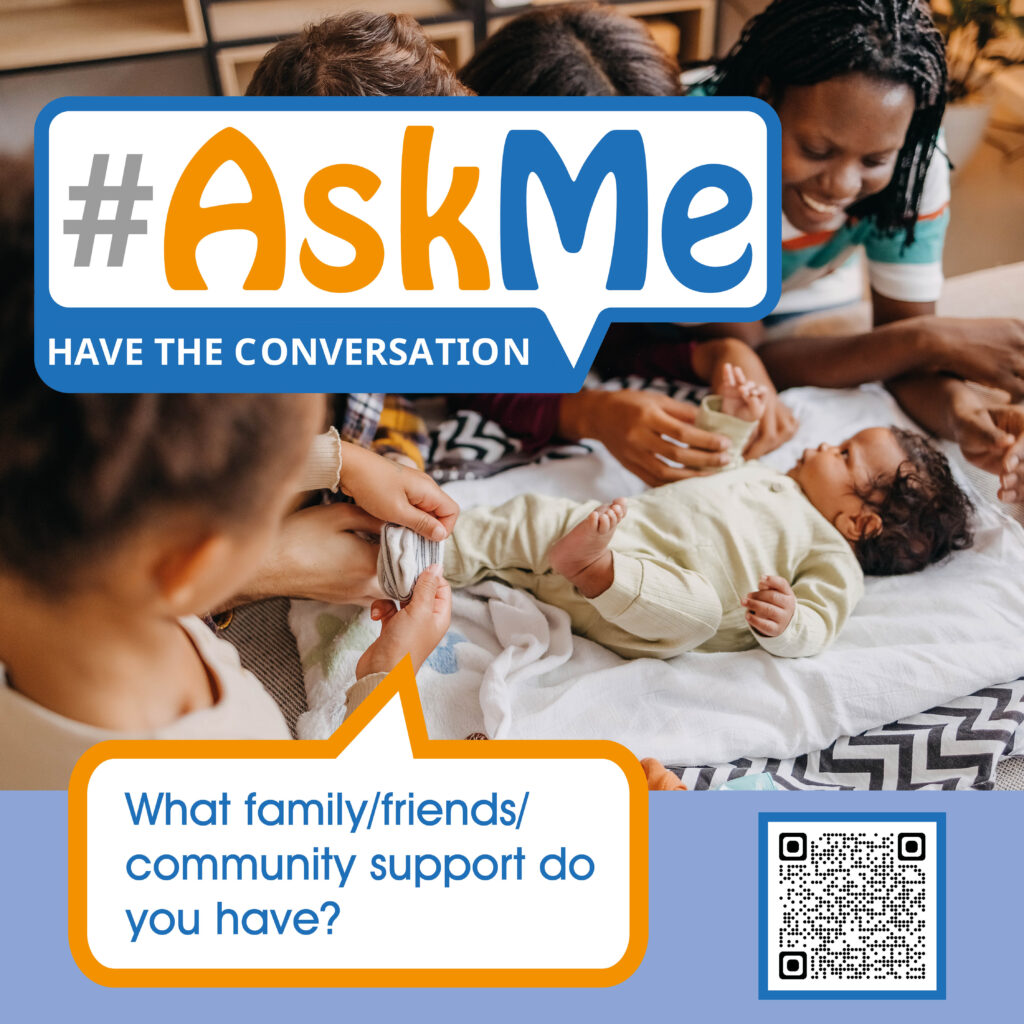
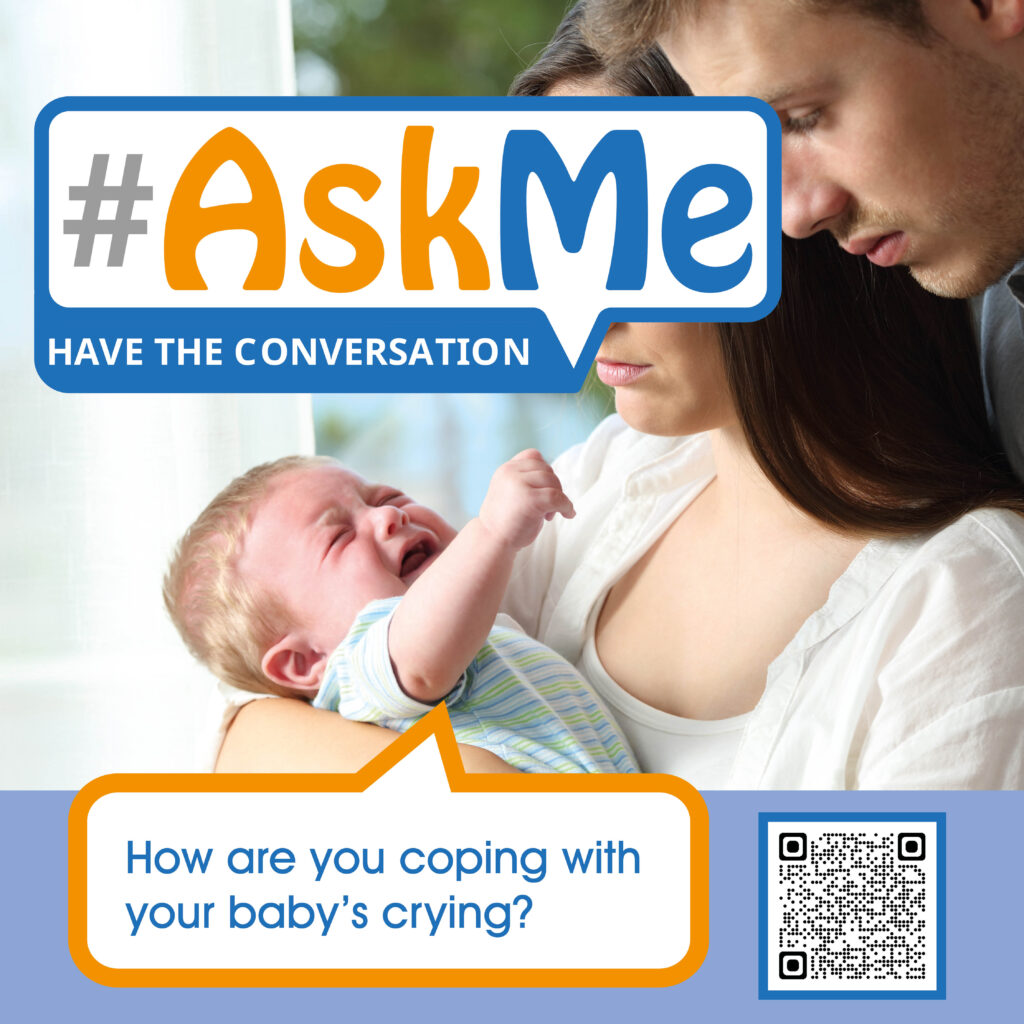
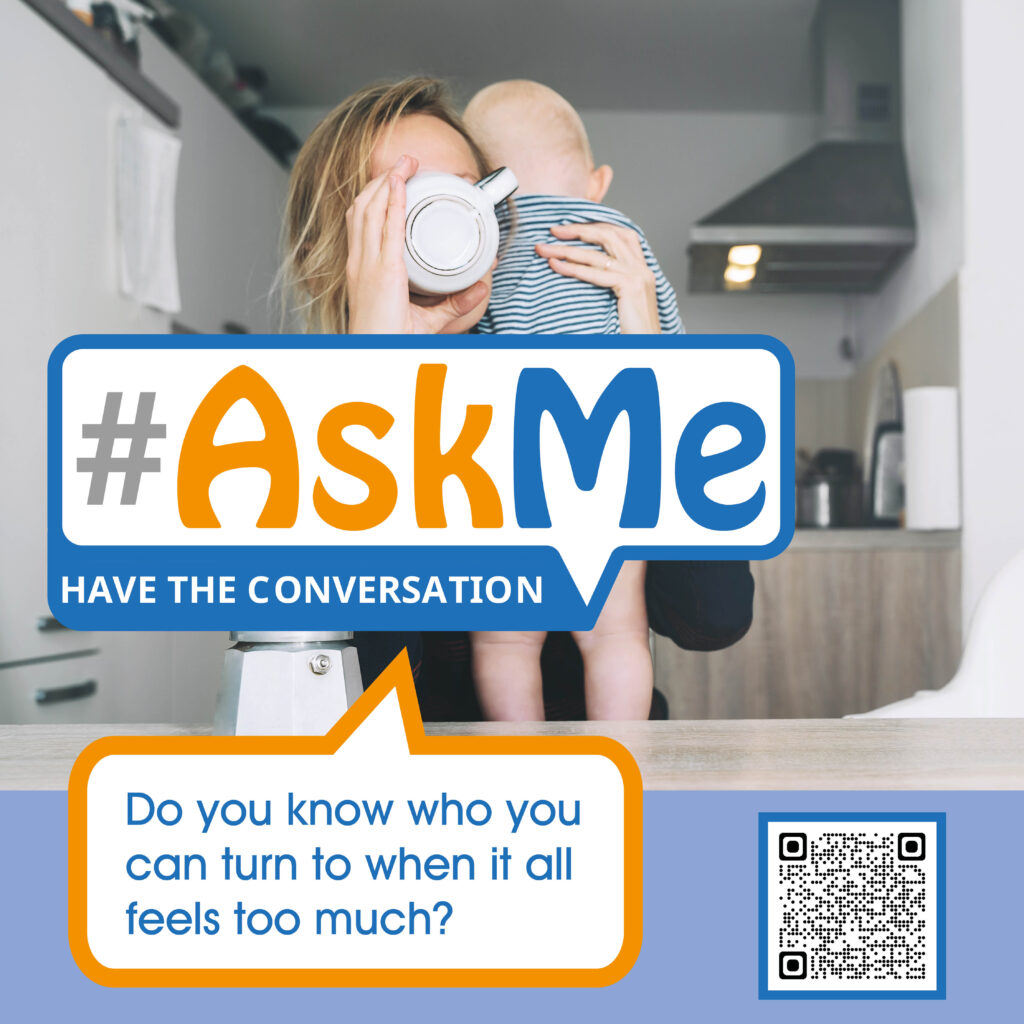
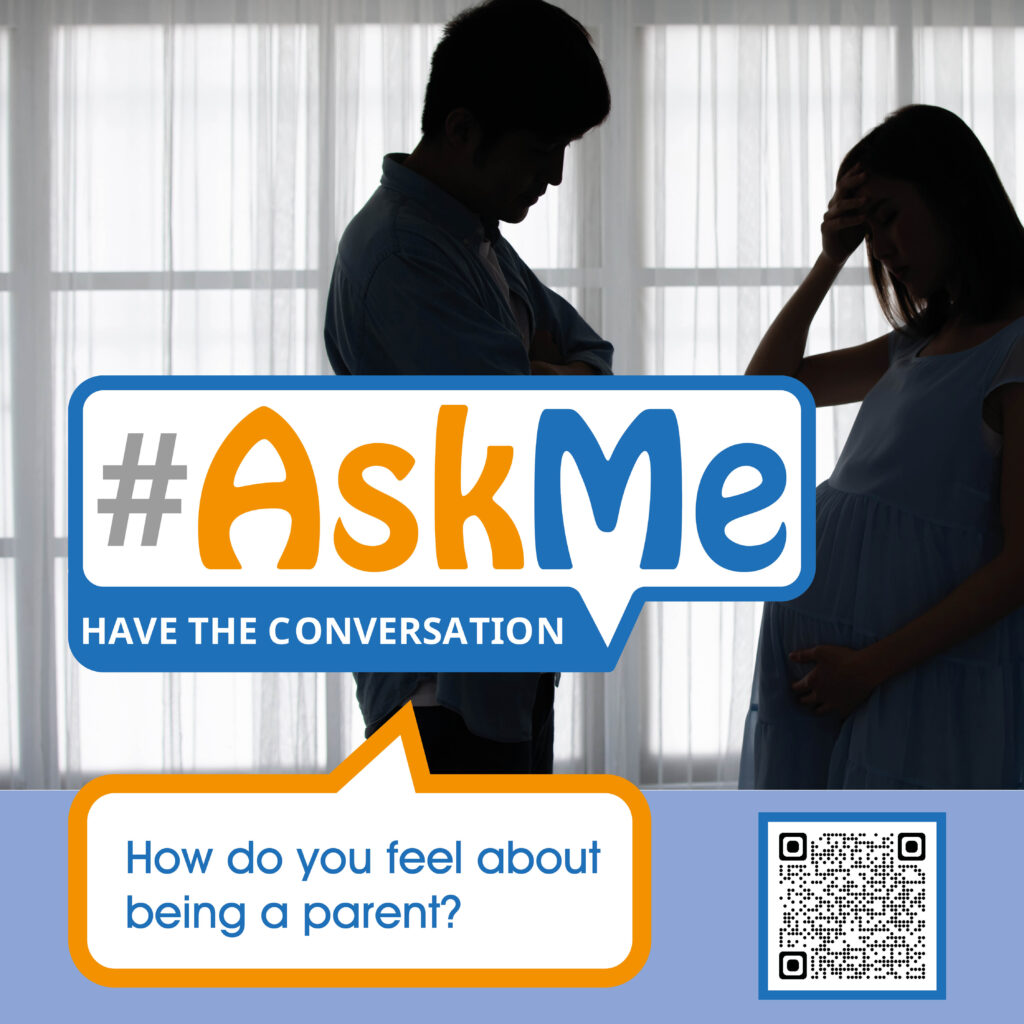
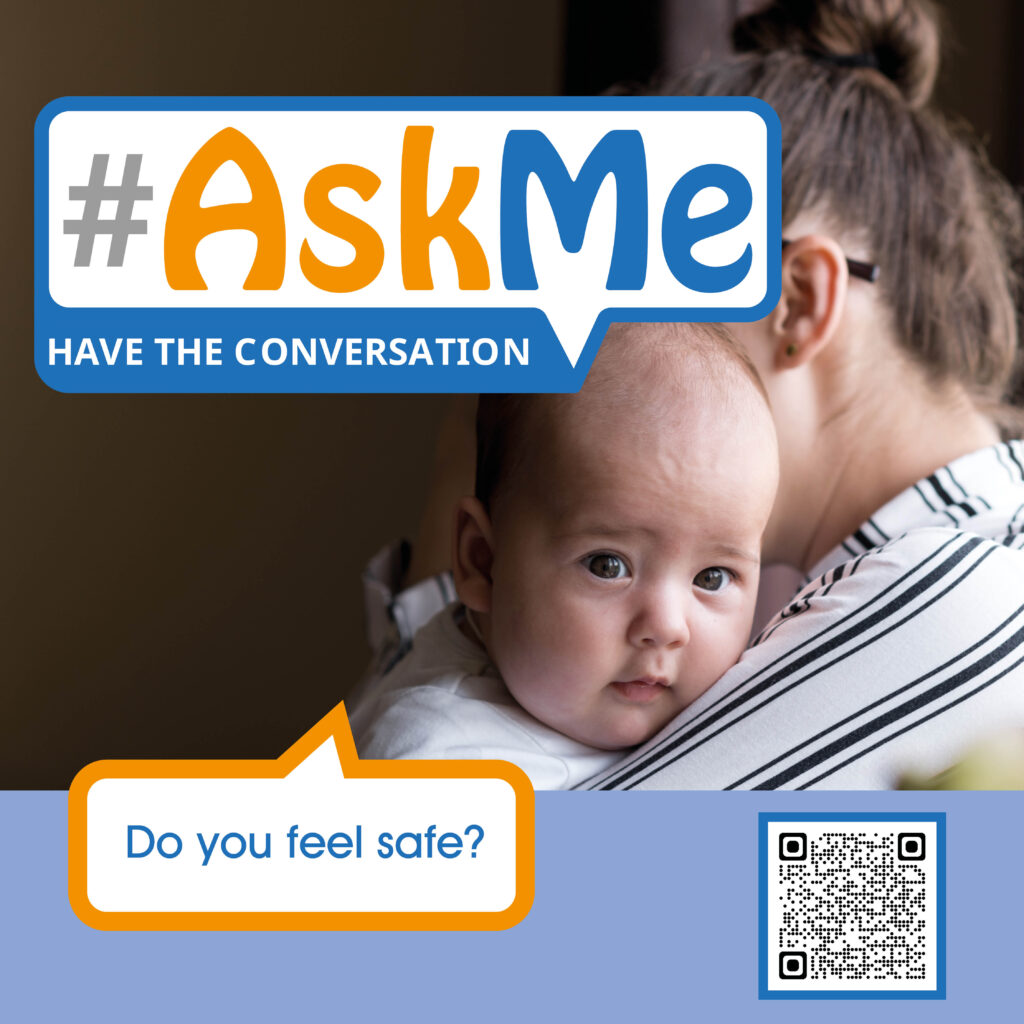
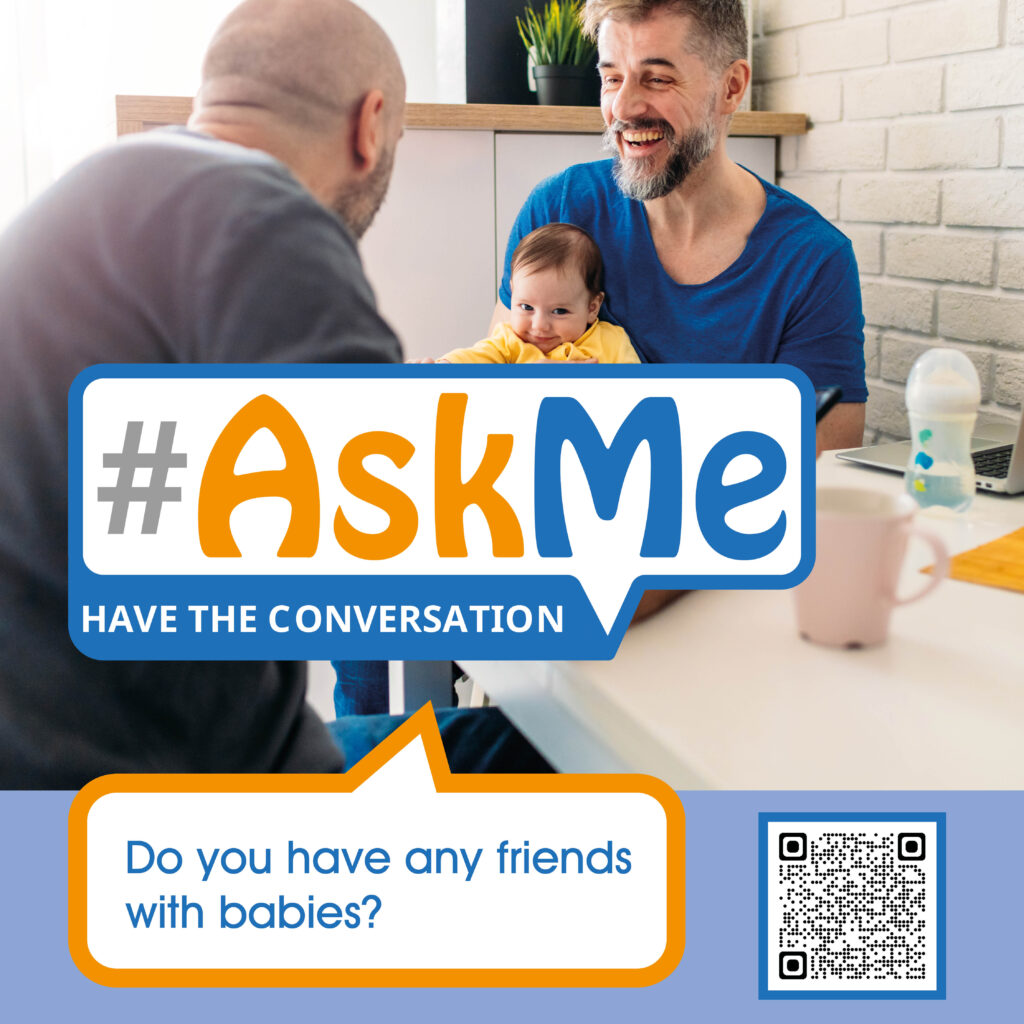
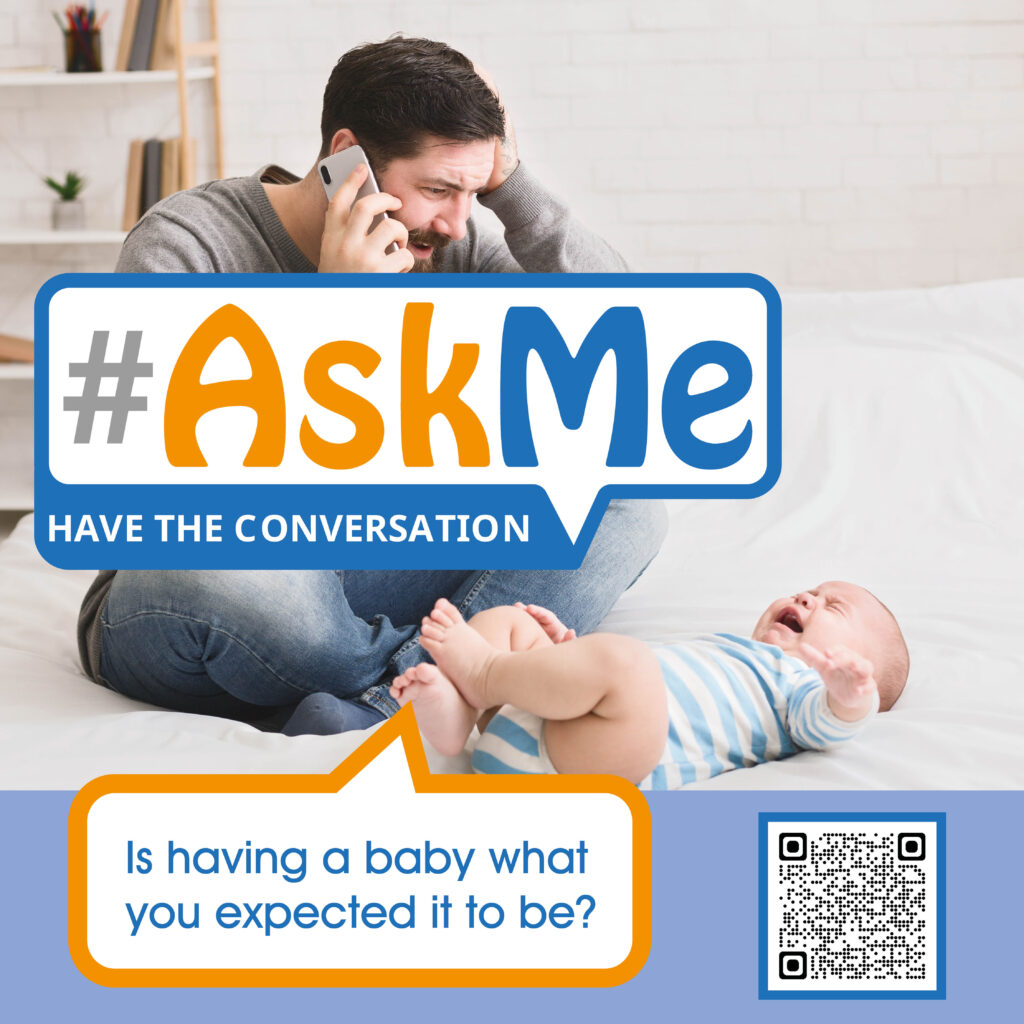
Suggested posts:
- Use the #AskMe resources to build confidence to #havetheconversation with parents about how they are feeling about the changes parenthood can bring and how they are caring for their baby. NYSCP (safeguardingchildren.co.uk)
- Take every opportunity to #AskMe and talk to parents about their baby’s sleeping arrangements. Have the conversation about when times are challenging or when routines change, find out more about the safe sleep messages. NYSCP (safeguardingchildren.co.uk) #Havetheconversation
- #Havetheconversation and give parents the opportunity to talk about the worries and challenges they may have about being a parent and offer support. Find all the resources and more NYSCP (safeguardingchildren.co.uk) #AskMe
- We all need help with the challenges of parenthood; no one should have to do it alone. Use the #AskMe resources to encourage conversations with parents about what their support network looks like and where they can access more support if needed. #Havetheconversation NYSCP (safeguardingchildren.co.uk)
- When babies cry it can be stressful and overwhelming. Take every opportunity to #Havetheconversation with parents about the challenges and how they can access support. Find the key messages here NYSCP (safeguardingchildren.co.uk) #AskMe
- Every conversation is an opportunity to really listen to how parents are feeling and offer help and support. Not sure where to start? Find all the resources here: NYSCP (safeguardingchildren.co.uk)#AskMe #Havetheconversation
- Having a baby can bring many joys and challenges, parents need the opportunity to talk about both and feel supported in however they are feeling #AskMe #Havetheconversation NYSCP (safeguardingchildren.co.uk)
- Speak to parents about the challenges of parenthood and use that the opportunity to ask parents if they feel safe. No-one should feel alone, anxious, or afraid and support is available. NYSCP (safeguardingchildren.co.uk) #AskMe #Havetheconversation
- Being a new parent brings joys and challenges. Don’t forget about dad and #Havetheconversation with them about how they feel! For more information NYSCP (safeguardingchildren.co.uk) #AskMe
- We all need help with the challenges of parenthood; no one should have to do it alone including dads. Use the #AskMe resources to encourage the conversation with dads about how they are feeling, who helps when times feel tough and where they can access support #Havetheconversation NYSCP (safeguardingchildren.co.uk)
Use the #AskMe resources to build confidence to #havetheconversation with parents about how they are feeling about the changes parenthood can bring and how they are caring for their baby. NYSCP (safeguardingchildren.co.uk)
Email Banner:
Why not include a banner on your email signature to support the campaign

Keeping up to date:
There are lots of ways to keep up to date with key safeguarding updates from the partnership and share updates with your teams:
Follow us on social media: (click on the icons to subscribe)
Subscribe to our YouTube Channel and access a library of recorded safeguarding webinars:



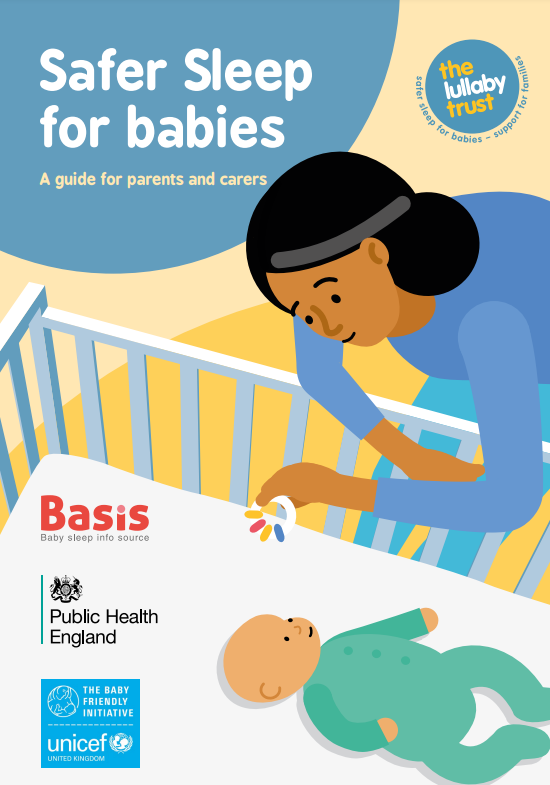
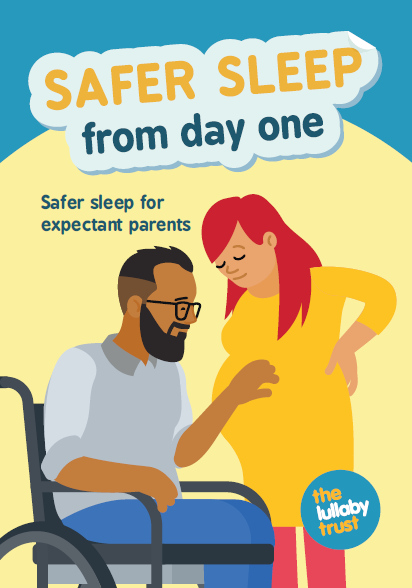
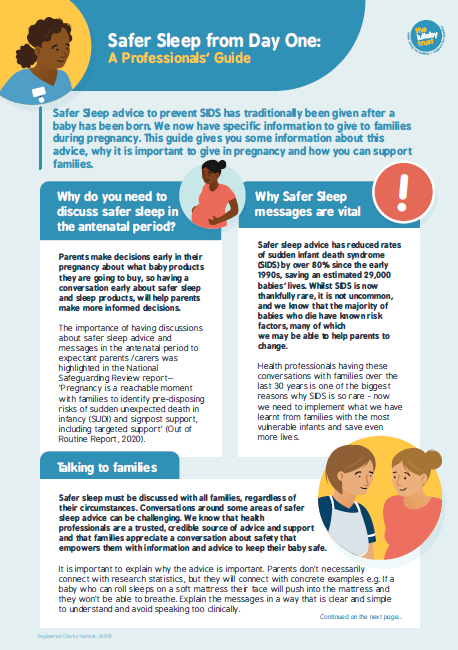
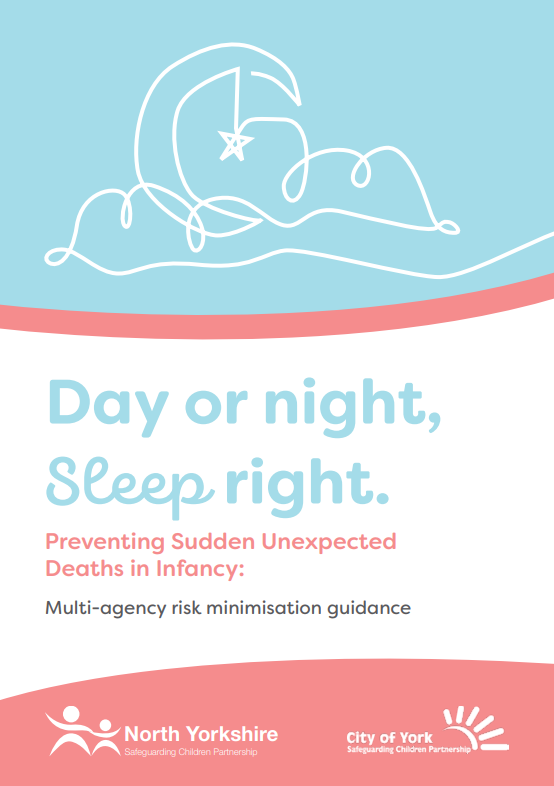
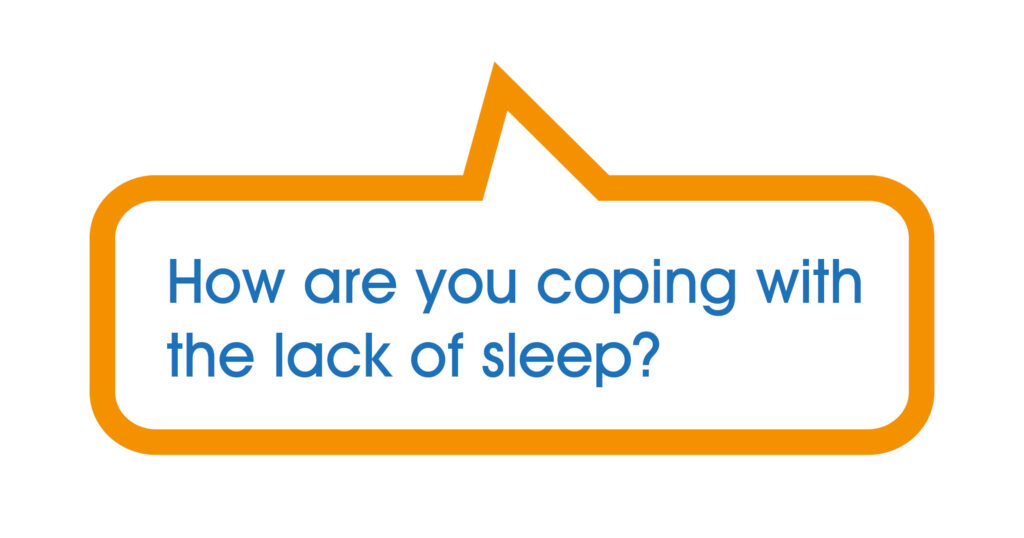
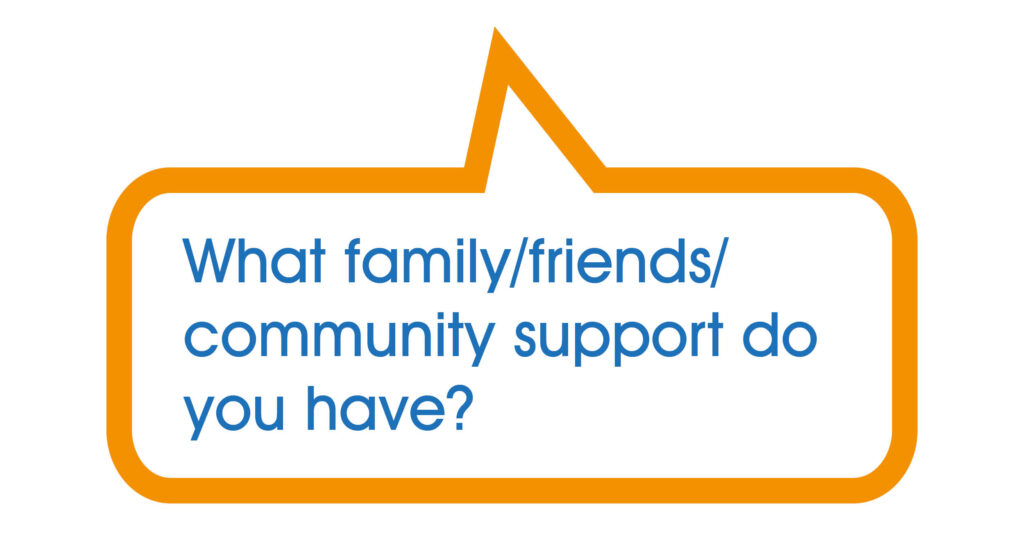
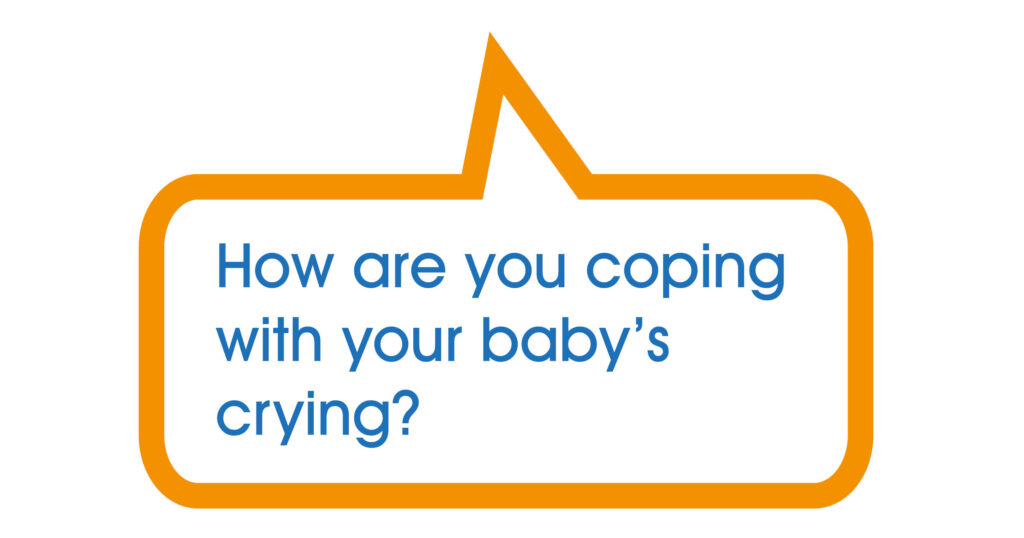
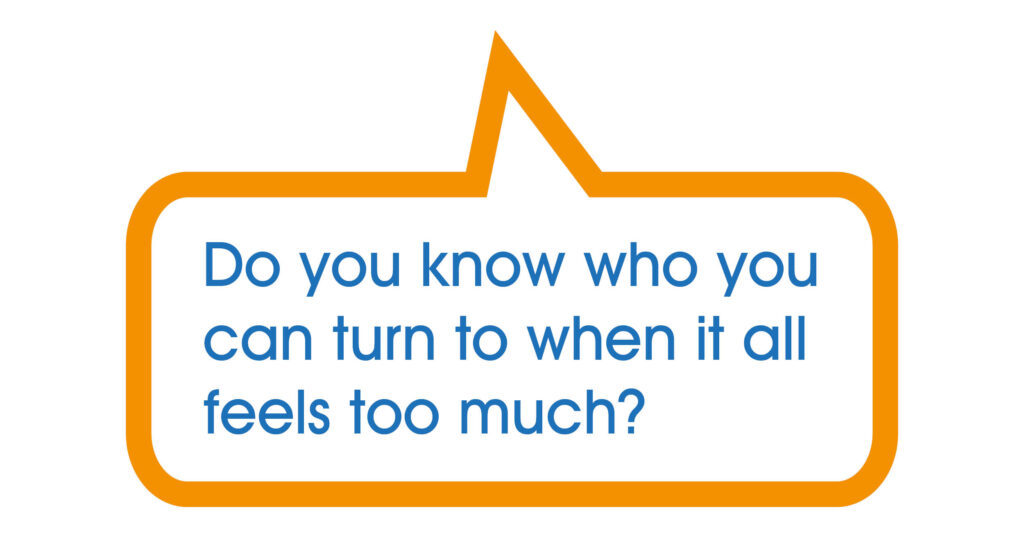
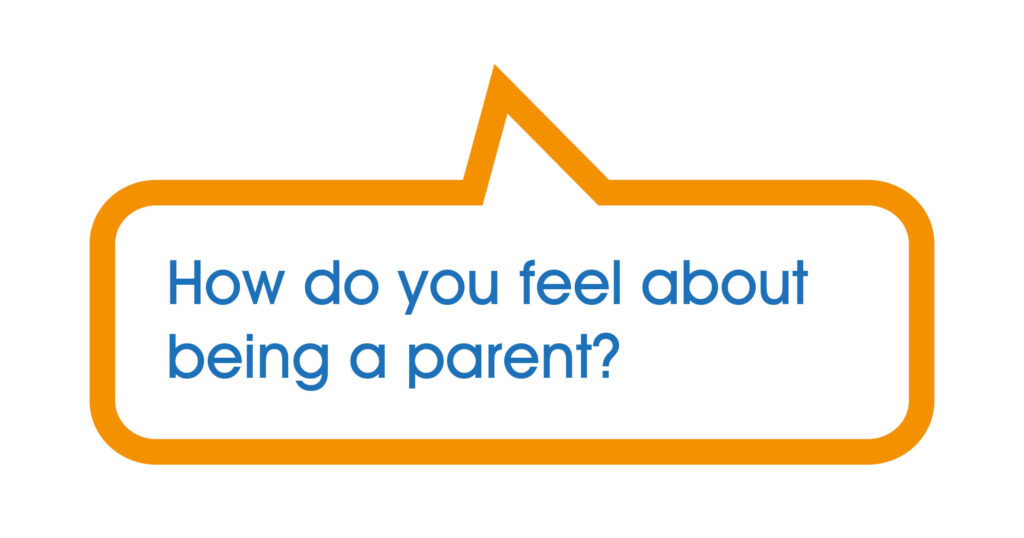
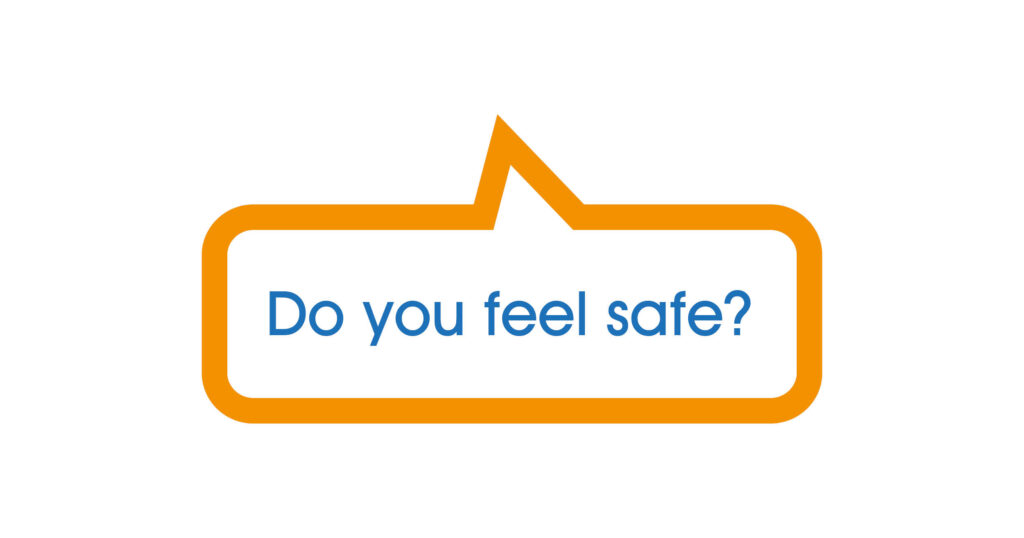

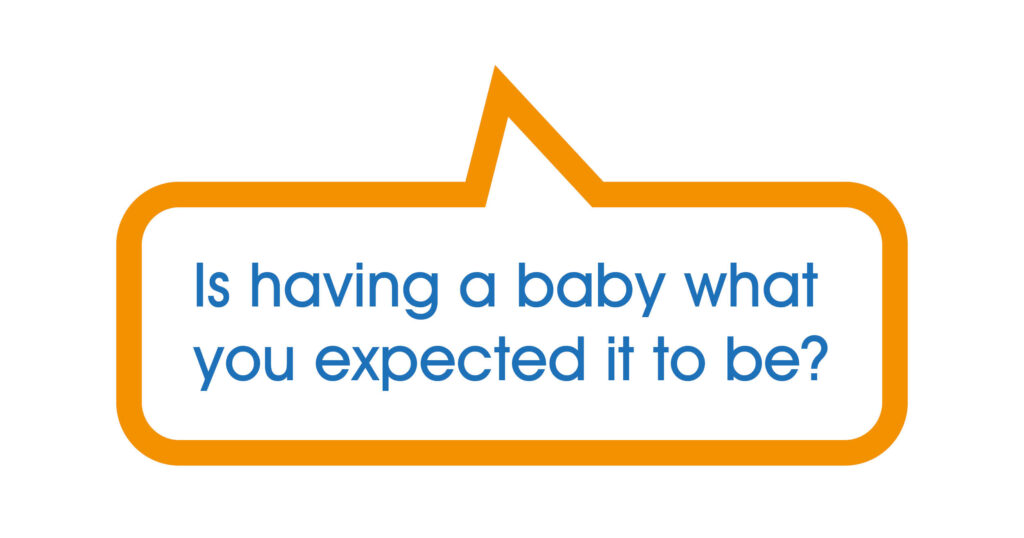
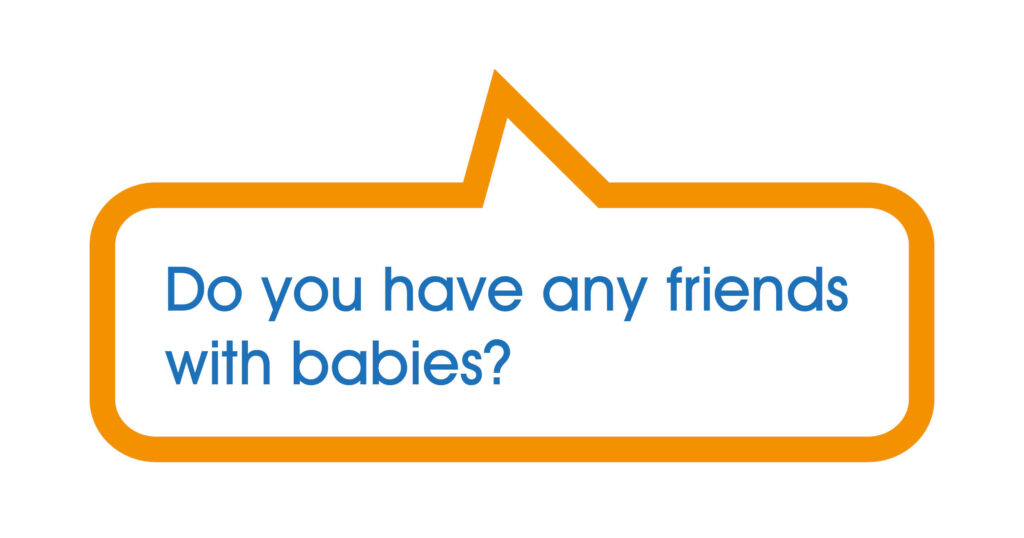






 View all our news
View all our news